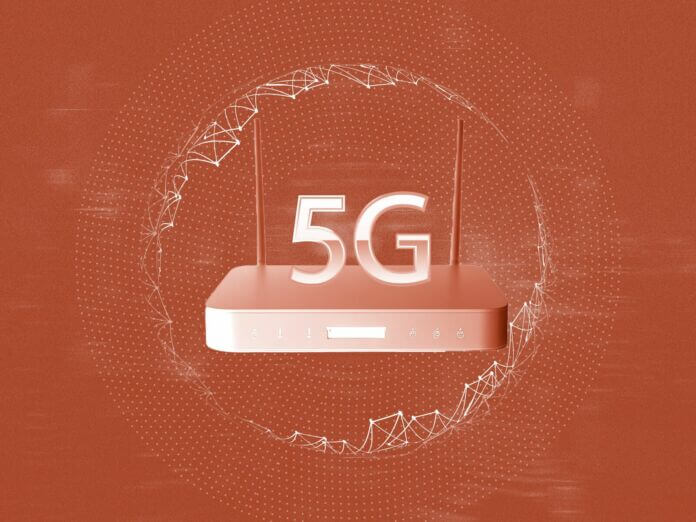
KORE – October 3, 2024
Collected at: https://www.iotforall.com/the-promise-of-5g-fixed-wireless-access-for-business-internet
As businesses navigate the complexities of the digital era, the demand for reliable, high-speed internet has become a top priority. Today, internet connectivity goes beyond simple communication – it’s the backbone of business operations, powering cloud-based applications, supporting remote workforces, and enabling data-driven decision-making.
Amidst these changing needs, 5G Fixed Wireless Access (FWA) is emerging as a game-changer in the world of business internet, offering a flexible, high-performance solution that’s reshaping connectivity.
Understanding 5G Fixed Wireless Access
5G Fixed Wireless Access represents a new way to deliver broadband internet by using 5G networks to provide connectivity to fixed locations, like homes or businesses.
Unlike traditional wired connections like fiber or Digital Subscriber Line (DSL), 5G FWA relies on wireless technology, using radio signals transmitted from nearby 5G base stations to customer premises equipment (CPE) located at the user’s site. T
his technology offers a unique combination of speed, reliability, and flexibility, allowing it to serve as both a primary and backup internet solution for businesses of all sizes.
Opportunities for 5G Fixed Wireless Access
#1: Enhancing Business Continuity with Redundant Connectivity
For many businesses, internet downtime can lead to significant operational disruptions, financial losses, and damage to reputation. 5G FWA serves as a highly effective backup connection, offering low-latency internet that can seamlessly switch over in the event of network outages.
Unlike traditional failover options that may involve slow and costly wired connections, 5G FWA provides high-speed connectivity even in redundancy mode, making it particularly valuable for sectors like finance, healthcare, and retail, where continuous, uninterrupted connectivity is crucial.
#2: Accelerating Deployment and Reducing Costs
Traditional wired internet solutions, such as fiber or cable, often involve extensive infrastructure and significant installation time, which can delay deployment and increase costs. In contrast, 5G FWA can be set up quickly with minimal infrastructure, allowing businesses to access high-speed internet without waiting for lengthy construction projects.
This speed of deployment is particularly advantageous for businesses in underserved areas or new locations where traditional wired options are either unavailable or prohibitively expensive. The elimination of the “last mile” wiring costs makes 5G FWA an attractive alternative for businesses looking for cost-effective connectivity solutions.
#3: Bridging the Digital Divide and Supporting Rural Businesses
The ability of 5G FWA to deliver high-speed internet wirelessly makes it a powerful tool in addressing the digital divide, especially in rural and underserved areas. Governments and private enterprises are increasingly investing in 5G FWA deployments to provide reliable internet access in regions where traditional wired broadband services are limited or non-existent.
For businesses in these areas, 5G FWA can open up new opportunities by enabling access to digital tools and services, participating in global supply chains, and reaching wider markets online. By providing an alternative to wired broadband, 5G FWA helps level the playing field for businesses in remote locations, fostering economic growth and innovation.
#4: Enabling Private Networks for Enhanced Security and Control
Security remains a top concern for businesses operating in sectors like finance, healthcare, and critical infrastructure. 5G FWA enables the creation of private networks that offer enhanced security, control, and reliability compared to traditional public networks.
These private 5G networks provide businesses with dedicated bandwidth and advanced security features, such as network slicing, which allows them to isolate sensitive data and applications. For industries with stringent data privacy and security requirements, 5G FWA offers a secure alternative to conventional wired or Wi-Fi networks, reducing the risk of cyber threats and data breaches.
#5: Supporting Hybrid Customer Premises Equipment (CPE) and Flexible Deployments
The flexibility of 5G FWA extends beyond its rapid deployment capabilities. It is compatible with hybrid CPE, which can combine multiple types of internet connections – such as DSL, cable, fiber, and wireless – into a single device.
This multi-connectivity approach allows businesses to optimize their internet performance, improve redundancy, and ensure uninterrupted service through multiple connection types. Hybrid CPE also enables dynamic traffic management and load balancing, enhancing the overall user experience and providing businesses with greater control over their connectivity options.
The Future of 5G Fixed Wireless Access
As 5G networks continue to expand, the capabilities of 5G FWA will only improve. With faster speeds, lower latency, and greater capacity, businesses will have more opportunities to innovate, optimize operations, and expand their reach.
Looking ahead, 5G FWA is expected to play a critical role in the development of smart cities, the deployment of IoT applications, and the expansion of cloud-based services. It will support the growing demand for digital services across industries, enabling businesses to stay competitive in an increasingly digital world.
Businesses should consider integrating 5G FWA into their connectivity strategies – not just as a backup or supplementary service, but as a primary solution that can adapt to their evolving needs. By doing so, they can position themselves to take advantage of the next wave of technological advancements, ensuring they remain agile, resilient, and prepared for the future.

Leave a Reply